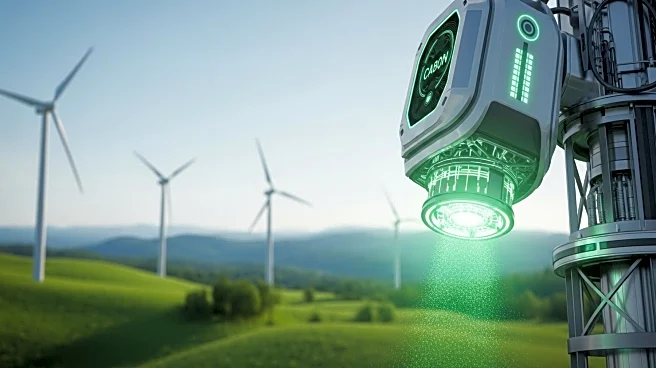What's Happening?
Manufacturers are increasingly viewing carbon not as a waste product but as a resource that can be integrated into sustainable manufacturing processes. By using recycled, bio-based, and captured carbon materials, manufacturers can create closed-loop systems that reduce atmospheric carbon without significantly altering production costs. Interface, a company in the construction industry, has incorporated captured carbon into its carpet tile manufacturing, aiming to become fully carbon-negative by 2040.
Why It's Important?
This approach represents a significant shift in how manufacturers address carbon emissions, moving beyond carbon credits to direct emission reductions. By transforming carbon into a resource, manufacturers can enhance their sustainability efforts, reduce their environmental footprint, and maintain competitiveness. The initiative supports global climate goals and demonstrates the potential for scalable, practical, and commercially viable solutions in the manufacturing sector.
Beyond the Headlines
The transformation of carbon in manufacturing highlights the need for innovation in product design, sourcing, and production. It challenges the industry to rethink traditional practices and invest in sustainable technologies. The success of such initiatives could lead to broader adoption across industries, driving systemic change and contributing to long-term climate resilience.









